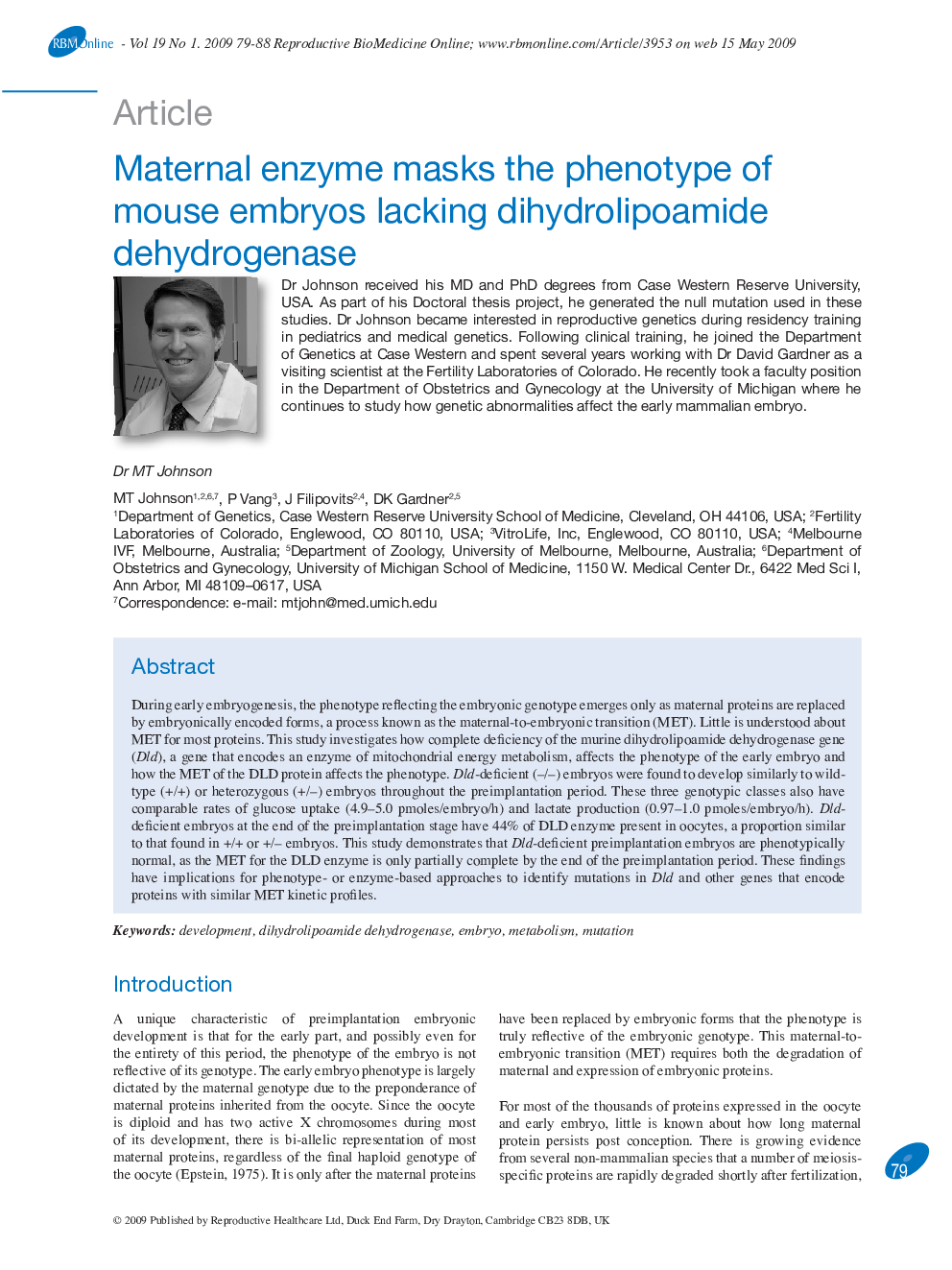| Article ID | Journal | Published Year | Pages | File Type |
|---|---|---|---|---|
| 3972262 | Reproductive BioMedicine Online | 2009 | 10 Pages |
During early embryogenesis, the phenotype reflecting the embryonic genotype emerges only as maternal proteins are replaced by embryonically encoded forms, a process known as the maternal-to-embryonic transition (MET). Little is understood about MET for most proteins. This study investigates how complete deficiency of the murine dihydrolipoamide dehydrogenase gene (Dld), a gene that encodes an enzyme of mitochondrial energy metabolism, affects the phenotype of the early embryo and how the MET of the DLD protein affects the phenotype. Dld-deficient (−/−) embryos were found to develop similarly to wild-type (+/+) or heterozygous (+/−) embryos throughout the preimplantation period. These three genotypic classes also have comparable rates of glucose uptake (4.9–5.0 pmoles/embryo/h) and lactate production (0.97–1.0 pmoles/embryo/h). Dld-deficient embryos at the end of the preimplantation stage have 44% of DLD enzyme present in oocytes, a proportion similar to that found in +/+ or +/− embryos. This study demonstrates that Dld-deficient preimplantation embryos are phenotypically normal, as the MET for the DLD enzyme is only partially complete by the end of the preimplantation period. These findings have implications for phenotype- or enzyme-based approaches to identify mutations in Dld and other genes that encode proteins with similar MET kinetic profiles.
